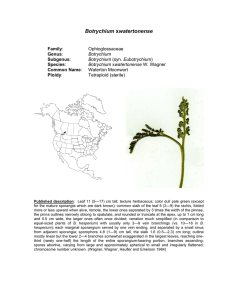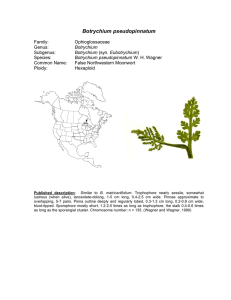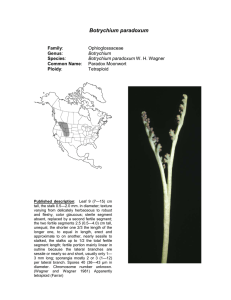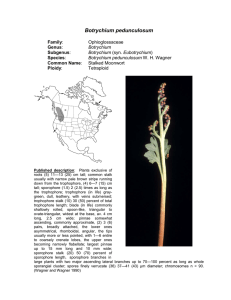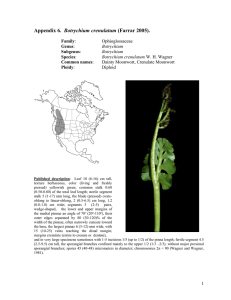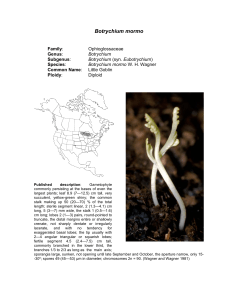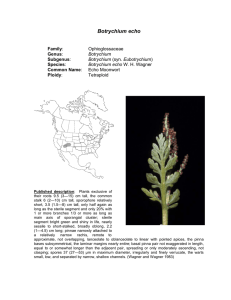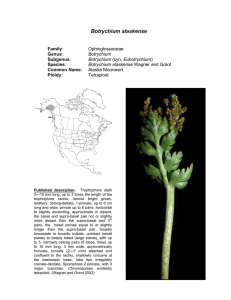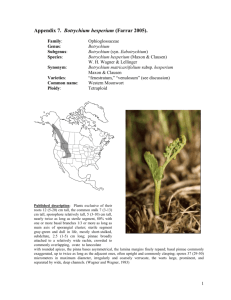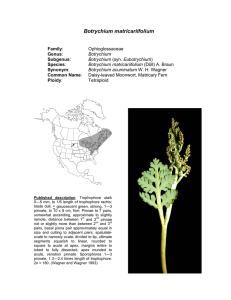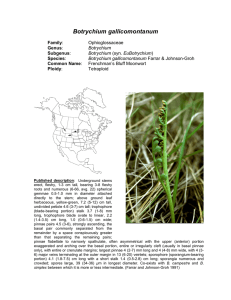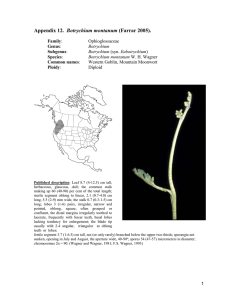(Farrar 2005). Botrychium paradoxum Ophioglossaceae
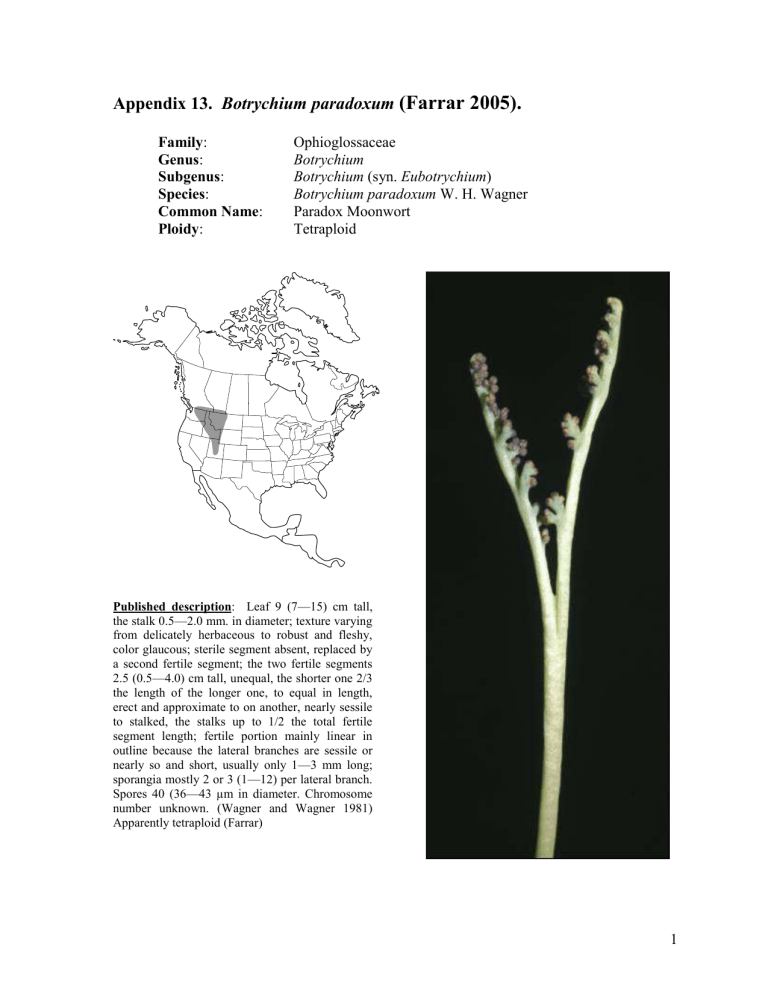
Appendix 13. Botrychium paradoxum
(Farrar 2005).
Ophioglossaceae
Botrychium
Family :
Genus :
Subgenus : Botrychium (syn. Eubotrychium )
Species : Botrychium paradoxum W. H. Wagner
Common Name : Paradox Moonwort
Ploidy : Tetraploid
Published description : Leaf 9 (7—15) cm tall, the stalk 0.5—2.0 mm. in diameter; texture varying from delicately herbaceous to robust and fleshy, color glaucous; sterile segment absent, replaced by a second fertile segment; the two fertile segments
2.5 (0.5—4.0) cm tall, unequal, the shorter one 2/3 the length of the longer one, to equal in length, erect and approximate to on another, nearly sessile to stalked, the stalks up to 1/2 the total fertile segment length; fertile portion mainly linear in outline because the lateral branches are sessile or nearly so and short, usually only 1—3 mm long; sporangia mostly 2 or 3 (1—12) per lateral branch.
Spores 40 (36—43 µm in diameter. Chromosome number unknown. (Wagner and Wagner 1981)
Apparently tetraploid (Farrar)
1
Identification
Botrychium paradoxum is unique among moonwort species in having no trophophore. Rather it has two nearly identical sporophores. Although all moonwort species occasionally, and some regularly, produce sporangia on the margins of the trophophore pinnae, especially the basal pair, B. paradoxum differs in producing no trophophore blade tissue at all. The only somewhat similar moonwort is B.
x watertonense , a hybrid between B. paradoxum and B. michiganense , in which sporangia are produced around the margin of all the trophophore pinnae. In this taxon green blade tissue is clearly present in the central part of each pinna.
Having stated the above, it must be cautioned that freak specimens of other species are occasionally formed that mimic B. paradoxum . Isolated individuals found outside the range of B. paradoxum must be tested genetically to determine their identity. For example, a specimen collected in Minnesota in 2004 had two sporophores and no trophophore but was genetically identical to other plants of B. matricariifolium in the area.
Distribution
Botrychium paradoxum occurs from south central Utah northward to Montana and
Washington and into southern British Columbia, Alberta and Saskatchewan
Habitat
Botrychium paradoxum is a plant of mesic to wet subalpine mountain meadows dominated by grasses, sedges and in some cases, dense herbaceous (fireweed) cover.
2
Additional photographs of Botrychium paradoxum :
3
